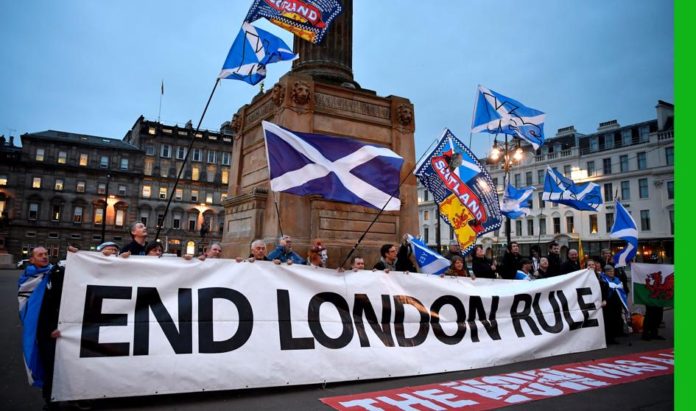In the referendum in September 2014, the Scots said “no” to independence by a narrow margin (55% opposed, against 45% in favor of independence). The independence discussion was closed and it seemed that the matter was postponed for the next generation, at least.
But a surprise event turned everything upside down. In the June 2016 referendum, the British decided to leave the European Union. However, in Scotland the majority (62%) chose to remain in Europe. Faced with the Europhobic positions of England, Scotland clearly chose Europe. The gulf between the two nations grew even larger.
Political parties and independence movements, led by the SNP and the “Independence Convention”, believed that Brexit broke the rules of the game of the referendum agreed in 2014, and consequently called for another referendum on Scottish independence. Therefore, in March 2017, Scottish Prime Minister Nicola Sturgeon made a formal request to London for a second referendum, which Theresa May rejected. In the last three years there has been a permanent confrontation on this issue between the two governments, with the arrival of Boris Johnson in Downing Street further worsening relations between London and Edinburgh, as the British Prime Minister has maintained a closed position and made clear to the Scots that he will never authorize a second referendum.
It must be remembered that according to the “Scotland Act” of 1998 the Scottish Parliament cannot hold such referenda without the approval of Westmister. However, that matter has never been brought to court, so there is question as to whether Edinburgh could hold the referendum without such authorization.
In this context, 2019 was a sweet year for Scottish independence: in the UK elections, the SNP achieved a historic victory (of the 59 Scottish seats in the London Parliament, it won 48) and the streets of Edinburgh and Glasgow saw the largest demonstrations ever in favor of secession: on October 6, 2019, for example, 100,000 voices shouted in favor of independence in Edinburgh, in the successful initiative organized by the group “All Under One Banner”. It is not very common to see tens of thousands of people on the street in the nations of the United Kingdom (Scotland and Wales).
A recent poll (Ipsos-Mori) indicates that 58% of Scots would vote today for independence, the strongest support for secession so far. Brexit and the extravagant policies of Boris Johnson have fueled independence, and London’s negation to a second referendum has become a boomerang against unionism. Nothing at all like the tolerant stance of David Cameron, which facilitated the unionist victory of 2014.
In May next year, elections will be held in Scotland, and there is no doubt that the SNP will achieve a great victory. What will London do then? Will it negotiate a second referendum? It does not seem that flexibility is Boris Johnson’s most pronounced characteristic, in view of his crude attitude in the Brexit negotiations with Brussels … And what will the Scottish Government do in the face of London’s closed position? Prime Minister Nicola Sturgeon has clearly said that she does not want the Catalan model, and that the only way out is an agreed referendum. But many independentists do not share that opinión. Historian and well-known Scottish nationalist Isobel Lindsay told NAZIOGINTZA that some independentists propose that the Scottish elections of 2021 be treated as a referendum.
Therefore the year 2021 could be decisive in clarifying the political future of Scotland,. To agree to a referendum, or to see a brutal clash between London and Edinburgh. It seems difficult for the Boris Johnson government to change its attitude in the Scottish conflict, but very good results from the SNP in May 2021 could exert strong pressure. And faced with the refusal of the Conservative Party, the Scottish independence movement could still find another fissure: the United Kingdom Labour Party, much more pragmatic than the Conservative Party. It should be remembered that Labour said in 2019 that they would not authorize Scotland to organize a second referendum “in the first years of a Labour government.” Suggesting, therefore, that this would be possible in the future.
But Isobel Lindsay expressed her distrust to NAZIOGINTZA: “Labour will make some concessions but they will not authorise an independence referendum. We will have to organize ourselves and get international support. As the UK government is now more isolated internationally, this may work”

